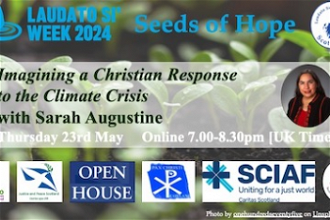Shooting Dogs
This is an impressive cinematic achievement. It is also a fine portrayal of a priest and the Catholic Church.
However, the subject of this film is one of the most shameful episodes in recent human history: the genocide in Rwanda, 1994. As the dominant Hutus massacred the Tutsis - 800,000 men, women and children were brutally hacked by machetes or shot from April to July - the UN peacekeeping force stood by their mandate of not intervening, to shoot only when shot at. And the superpowers discussed the definition and application of 'genocide'. These events took place at the same time as the wars in the Balkan peninsula where the UN and other nations intervened militarily.
David Belton, who co-wrote this story and has produced the film for BBC Films, was in fact a BBC director for Newsnight and was present at the events portrayed in the film. He had also reported from Bosnia and asks the questions about race and racism concerning intervention in the Balkans and non-intervention in Africa.
Shooting Dogs refers to the experience of dogs outside the school grounds, where over two thousand Tutsis took refuge and are being sheltered by the resident priest. It is also the designated base for the UN troops. As the dogs scavenge the many brutalised corpses lying out in the streets, the UN chief says they must be shot for hygiene's sake and to save lives. The priest ironically asks why they can shoot dogs and not the marauding gangs who are butchering innocent people in full view.
The film is structured in diary form - covering six days in April 2004 and confined to the school and its surroundings. The opening scenes take us into the daily routine, ordinary things, sports, classes, Mass. Officials turn up to scrutinise the presence of Tutsis. Lists are compiled. When the president is killed by rocket attack, the guns begin to fire and the rampage begins. The president's UN security guard are executed. No one is safe.
Then the UN troops retreat to the airport taking the Europeans but leaving the Tutsis. While there are many Tutsi characters to empathise with, the screenplay focuses on an idealistic young volunteer teacher (Hugh Dancy) and the shock he experiences and his moral crises in what he can and cannot do. It then centres on the veteran missionary, Fr Christopher, who has spent thirty years in Rwanda. (David Belton says that the priest on whom he based this character was, in fact, from Bosnia). Fr Christopher is one of John Hurt's great performances. It is commonsensed, low-key and committed.
The screenplay introduces several spiritual and theological themes: the place of prayer in African life, surface and deep faith, the power of the Eucharist and the issues of God and evil, the meaning of Jesus' passion and death. In answer to a young girl's question about loving one's enemies, Fr Christopher says that God might not like the things we do, those are our choices, but he still loves all of us. The issue of Jesus' loving sacrifice gives meaning to Fr Christopher's choices, for giving his life to save others.
Last year, Hotel Rwanda made a strong impression, with its story of the man who gave refuge to Tutsis in Kigali's prestigious hotel. This new film is even more powerful and broader in scope.
Shooting Dogs is a film that Catholics and everyone with a sense of justice should support.LONDON - 1 May 2006 - 588 words


















